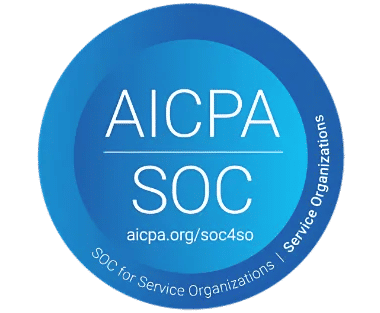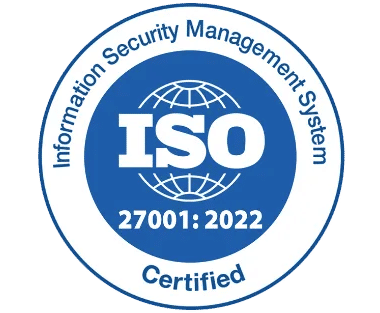How Civic Software Can Help Citizens Get Involved with Government?

Civic Software is changing the way people interact with local governments. With tools designed to improve interaction, citizens now have more chances to take part in decision-making and community development.
This Software helps people get involved by making it easier for them to shape their communities and support local growth.
Key Features:
- Online portals for easy access to public services
- Citizen feedback tools and surveys to share opinions
- Project and budget tracking tools for more transparency in government operations.
The Role of Municipal Software:
Municipal software is a specialized branch of civic software tailored to meet the unique needs of cities, towns, and local governments. It serves as an essential tool in modernizing municipal operations, streamlining processes, and boosting efficiency. By adopting this solution, local governments can stay focused on their core mission of serving the community efficiently, while reducing delays and eliminating administrative challenges.
Key features of Municipal Software include:
- Automating Administrative Tasks: Routine processes such as scheduling, documentation, and data entry are automated, freeing staff from repetitive work and allowing them to focus on higher-value activities.
- Managing Public Records: Centralized systems ensure that vital public records are securely stored, easily accessible, and well-organized, simplifying compliance with regulatory requirements.
- Handling Utility Billing and Payments: Citizens can pay utility bills online, track usage, and report issues, while municipalities can efficiently manage billing cycles and payment tracking.
- Organizing Permits and Licenses: Applications for building permits, business licenses, and other essential authorizations can be processed more quickly, reducing waiting times for residents and businesses.
How Civic and Municipal Software Benefit Citizens?
Here are some ways these tools help people get involved:
1. Easier Access to Information:
- Online platforms provide up-to-date information about local government activities.
- Citizens can quickly find details on meetings, events, and community programs.
2. Improved Communication Channels:
- Citizens can report issues like broken streetlights through mobile apps.
- Governments can send real-time updates via email, and text notifications.
3. Transparency in Decision-Making:
- Tools for tracking budgets and projects allow residents to see how funds are used.
- Online forums let people discuss and share opinions on proposed initiatives.
4. Simplified Participation:
- Virtual town halls enable citizens to join discussions from their homes.
- Digital surveys and polls gather community input on important issues.
Software for Municipalities: Key Examples
Here is some popular software solutions designed for municipal use:
1. Community Engagement Platforms:
- Allow residents to submit ideas and vote on local projects.
- Examples include: Public Input, Citizen Lab.
2. Utility Management Systems:
- Help governments manage water, electricity, and waste services.
- Allow citizens to pay bills online or report service issues.
3. Permit and Licensing Software:
- Streamlines applications for building permits and business licenses.
- Speeds up approval processes, reducing delays for applicants.
4. Public Safety Tools:
- Enhance emergency response by connecting citizens with local authorities.
- Examples: Reverse 911 systems for community alerts.
How Civic Software Encourages Greater Participation?
Civic Software plays a vital role in empowering citizens to take part in governance. Here is how:
1. Accessible Public Meetings:
- Virtual platforms enable more people to join government meetings without needing to travel.
- Recorded sessions allow residents to stay informed at their convenience.
2. Crowdsourcing Ideas:
- Tools like online suggestion boxes let people share innovative ideas for community improvement.
- Governments can prioritize projects based on community votes.
3. Encouraging Volunteerism:
- Platforms connect citizens with opportunities to volunteer in local initiatives.
- Examples: Event sign-up tools for clean-up drives or community building projects.
4. Real-Time Feedback:
- Mobile apps and online surveys enable governments to gather real-time feedback on new policies or projects.
- This helps shape initiatives that effectively meet community needs.
Success Stories: Civic Software in Action
1. Participatory Budgeting in Action:
- Cities using civic software have empowered residents to vote on how municipal funds are spent.
- Example: In New York City, participatory budgeting platforms helped allocate millions to community projects.
2. Faster Issue Resolution:
- Mobile apps for reporting problems have reduced response times for issues like street repairs.
- For example, See Click Fix enables residents to report issues and track their resolution status.
3. Enhanced Voter Turnout:
- Online tools simplify voter registration and provide election reminders.
- Example: TurboVote helps people stay informed about voting deadlines.
4. Improved Emergency Responses:
- Public safety software improves communication during crises.
- Example: Reverse 911 systems notify residents about emergencies in real-time.
The Advantages of Software for Municipalities:
1. Efficient Resource Allocation:
- Automation ensures resources are used effectively.
- Governments can focus on high-priority tasks, improving overall efficiency.
2. Greater Citizen Engagement:
- Easy-to-use platforms encourage more people to participate in local governance.
- Increased engagement leads to better, community-driven decisions.
3. Cost Savings:
- By streamlining operations, it reduces operational costs.
- Governments can allocate savings to other essential services.
4. Data-Driven Decisions:
- Analytics tools help governments understand community needs better.
- Data insights help drive informed and effective policymaking.
Why Civic and Municipal Software Matter:
- Boosts Trust in Government: Transparency tools allow citizens to see how decisions are made, policies are implemented, and funds are spent. Clear communication fosters trust keeps the public informed, and combats perceptions of inefficiency or corruption in government leadership.
- Encourages Active Participation: Making it easy for citizens to provide feedback helps them feel more connected to their community. This involvement motivates them to volunteer, vote, and support local initiatives that drive growth and prosperity.
- Increases Efficiency: This software automates administrative tasks, freeing staff to focus on citizen concerns and service improvement. Faster, more efficient processes lead to better, timely services for the public.
- Bridges the Digital Divide: Mobile-friendly platforms and multi-language support bridge the digital divide, ensuring everyone, regardless of access or background, can engage with local government and participate in community development.
How to Choose the Right Software for Municipalities:
When selecting civic, governments should carefully evaluate several key factors to choose the best solution for their community needs:
- User-Friendliness: The software should be intuitive and easy to use for both staff and citizens, reducing training time and enhancing engagement by simplifying navigation and adoption.
- Scalability: The software should be scalable to accommodate growing data, users, and functionality, ensuring it remains effective as community needs evolve.
- Integration: The software should integrate smoothly with existing systems, enhancing data sharing, reducing duplication, and improving operational efficiency without costly infrastructure changes.
- Cost-Effectiveness: Governments should choose cost-effective software that balances affordability with functionality, ensuring quality services without exceeding budget constraints.
- Security: Government software must have strong security features to protect citizen data, ensure privacy compliance, and maintain public trust.
Future of Civic Software:
As technology evolves, it will keep advancing to better serve communities:
- AI Integration: By incorporating artificial intelligence, predictive analytics can help governments make more informed decisions, identifying trends and anticipating future needs.
- Mobile Accessibility: More tools will be optimized for smartphones, making it easier for citizens to access government services on the go, ensuring broader participation.
- Enhanced Security: As concerns about data protection grow, this software will continue to strengthen security features, safeguarding citizen information with advanced cybersecurity measures.
- Increased Personalization: Future software will offer more personalized services, tailoring interactions and resources to meet the unique needs of individuals in the community.
- Blockchain Implementation: Blockchain technology will help create secure voting systems and ensure transparent record-keeping, increasing trust and accountability in government operations.
These innovations will significantly improve how governments engage with their communities, making services more accessible, secure, and efficient.
Conclusion
Civic Software is a powerful tool for connecting people with their governments. By simplifying processes, increasing transparency, and encouraging participation, these systems help build stronger, more engaged communities. Whether it is through accessing services online or sharing feedback on local projects, technology is making it easier than ever for citizens to make their voices heard.
Investing in the right software not only benefits governments but also empowers people to take an active role in shaping their communities. With tools like these, the future of civic engagement looks brighter than ever.
Ready to Transform Your Civic Operations?
Book a demo today and explore how Civic Software can streamline your processes, boost citizen engagement, and enhance the efficiency of local government services.
Frequently Asked Questions
1. What is Civic Software?
Civic software refers to technology solutions that empower local governments to efficiently manage services and foster stronger connections with their communities. It streamlines operations, enhances communication, and ensures public services are more accessible and user-friendly for citizens.
2. What is the Civic Platform?
The Platform is a suite of digital tools designed to enhance communication and engagement between governments and citizens. These tools simplify access to public services, enable feedback, and keep people informed about local events, fostering stronger connections within communities.
3. What is a Civic App?
A civic app is a mobile application that allows citizens to interact with their local government. It can be used to report issues, access government services, and stay informed about community events or updates.
4. How can technology be used in Civic Engagement?
Technology can enhance civic engagement by providing online platforms for citizens to share feedback, access information, and participate in local decision-making. Social media, apps, and websites make it easier for people to stay involved and informed.
5. What is Citizen Engagement Software?
Citizen engagement software is a tool that helps governments interact with their citizens. It enables two-way communication, allowing citizens to voice their opinions, report problems, and stay engaged with community matters.
6. What is a Municipal System?
A municipal system refers to the set of processes, policies, and tools used by local governments to manage public services and engage with citizens. It includes everything from waste management to public safety.
7. Which is the most popular form of Municipal Government?
The most popular form of municipal government in the U.S. is the Council-Manager system, where an elected council oversees policies, and a professional city manager handles day-to-day operations.










_svxLrd-8yH.png)

_2VYSFUTN5m.png)

_JiluXJRGNl.svg)

_2djTKNocf.png)





_Rapo0hRMBy.png)










